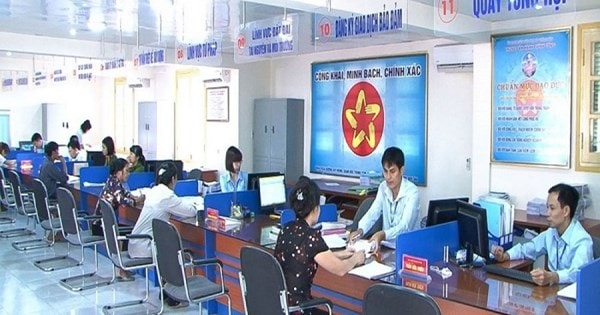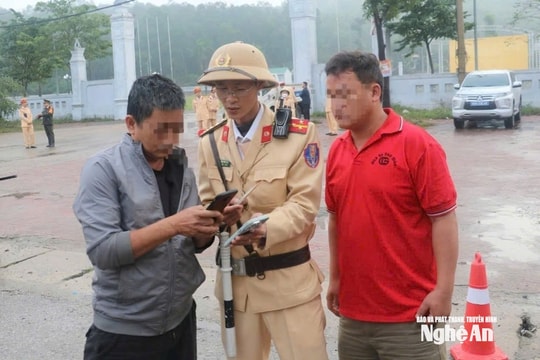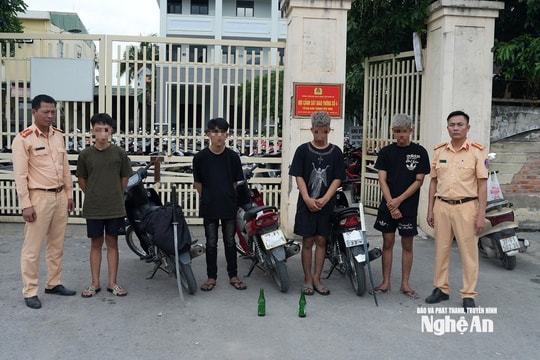New Resolution of the Government on promoting decentralization and delegation of power in State management
The Government has just issued Resolution 04/NQ-CP on promoting decentralization and delegation of power in State management.
|
| Review, revise, supplement and perfect regulations on functions, tasks, powers and organizational structure of ministries, branches and localities, linking decentralization and delegation of power with continuing to promote administrative reform, especially administrative procedure reform. |
Accordingly, promote and perfect the decentralization and delegation mechanism to clearly define the tasks and powers, competences and responsibilities between the Government and ministries and branches; between the Government, the Prime Minister, ministries and branches and local authorities in conjunction with perfecting the legal system to be complete, synchronous, unified, timely, feasible, stable, public, transparent, internationally competitive, focusing on the legitimate and legitimate rights and interests of people and businesses, ensuring the promotion of proactiveness, creativity, and upholding the sense of responsibility of each level and each branch, especially the leaders; at the same time, strengthen inspection, examination, supervision and control of the implementation of State power strictly by Party regulations and laws, contributing to building a democratic, professional, modern, clean, effective and efficient State administration serving the people.
Promote decentralization, delegation of authority, and clearly define responsibilities
Based on the Government's direction and management viewpoints and the tasks and solutions set out in the Government's Action Program to implement the Resolution of the 13th National Party Congress (issued with Resolution No. 50/NQ-CP), in order to promote the achieved results and overcome the shortcomings and limitations in decentralization and delegation of powers, the promotion of decentralization and delegation of powers in the coming time needs to focus on implementing a number of key tasks and solutions as follows:
Review, amend, supplement and perfect the provisions of specialized laws, in the direction of promoting decentralization, delegation of power, clearly defining the responsibilities between the Government and ministries and branches, between the Government, ministries and branches and local authorities, ensuring compliance with the spirit of the Resolution of the 13th National Party Congress, the provisions of the 2013 Constitution, the Law on Organization of the Government 2015 (amended and supplemented in 2019), in which: The Government focuses on macro-management, building institutions, policies, strategies, planning and plans; strengthening the capacity to forecast, analyze and propose policies; the Prime Minister leads the work of the Government; leads the policy making and organizes the implementation of laws; Ministers and heads of ministerial-level agencies are responsible for State management of assigned sectors and fields; organize the implementation and monitor the implementation of laws related to sectors and fields nationwide.
Accordingly, the Government and the Prime Minister do not decide on specific issues under the responsibility of ministries and branches as assigned by the Government and issues under the responsibility of local authorities within the scope of decentralization and delegation of authority.
Specifically,Complete regulations on decentralization of State management between the Government, the Prime Minister, ministries, branches and local authorities by sector and field:
- Sectors and fields of planning and investment: Investment; public investment; investment under the form of public-private partnership; bidding, statistics.
- Financial sector and field: Finance - State budget; price management; management and use of State capital invested in production and business at enterprises.
- Transport industry and field: Road; railway; aviation.
- Construction industry and field: Housing.
- Sectors and fields of natural resources and environment: Land; minerals; climate change.
- Information and communication industry and field: Digital government; digital technology industry; electronic transactions and digital economy; press; radio frequencies.
- Labor, war invalids and social affairs sector: Social insurance.
- Culture, sports and tourism sectors: Cinema; cultural heritage.
- Science and technology sector: High technology.
- Health sector and field: Population; preventive medicine; medical examination and treatment (organizing exams and granting medical practice certificates); food safety; health insurance.
- Inspection sector and field: Inspection.
Perfecting regulations on decentralization of State management between the Government and ministries and ministerial-level agencies by sector and field:
- Sectors and fields of planning and investment: Official development assistance and foreign concessional loans (ODA).
- Industry, field of resources and environment: Marine and island resources and environment.
- Cultural sector: Culture.
- Foreign affairs sector: Consular.
- Judicial sector: International cooperation on law.
- Inspection sector: Power control.
Perfecting regulations on decentralization of State management between the Government, Prime Minister, ministries, ministerial-level agencies and local authorities by sector and field:
- Sectors and fields of planning and investment: ODA; regional linkage development.
- Financial sector: Finance - State budget; investment credit.
- Industry and trade sector: Industry.
- Agriculture and rural development sectors and fields: Animal husbandry; forestry.
- Transport industry and field: Road (highway, national road); railway; inland waterway; traffic safety; aviation; traffic infrastructure; transportation; management of vehicles and equipment participating in traffic.
- Construction industry and field: Construction investment activities; urban development; construction quality management.
- Industry, field of resources and environment: Marine and island resources and environment.
- Information and communication industry and field: Post and telecommunications; radio frequencies.
- Culture, sports and tourism sectors and fields: Family; grassroots culture.
- Science and technology sectors and fields: Technical standards and regulations; standards, measurement and quality of products and goods; scientific and technological activities.
- Education and training sector: Education.
- Medical industry and field: Pharmacy.
- Internal affairs sector: Organizational structure.
- Inspection sector: Power control.
Linking decentralization and delegation of power with continuing to promote administrative reform
Review, amend, supplement and perfect regulations on functions, tasks, powers, and organizational structure of ministries, branches and localities, linking decentralization and delegation of power with continuing to promote administrative reform, especially administrative procedure reform, prioritizing ensuring resources to accelerate the implementation of online public services at level 4, striving to achieve 100% of procedures meeting the conditions for level 4 by 2022, improving the quality of public service, civil servants and restructuring the team of civil servants and public employees to meet the requirements and political tasks in the new situation, especially strengthening responsibility, discipline, administrative discipline in performing public duties and the responsibilities of leaders, including:
+ On the basis of completing regulations on decentralization and delegation of power, agencies in the State administrative organization system from the central to local levels are responsible for reviewing the organizational structure, job positions, and adjusting the number of staff accordingly to effectively implement regulations on decentralization and delegation of power in State management, ensuring the transfer of tasks associated with the transfer of organizational structure and staff.
+ Arrange sufficient resources and other necessary conditions so that agencies and organizations, after being reorganized and consolidated, have sufficient conditions to perform assigned tasks and powers, ensuring compliance with the provisions of the Law on Organization of the Government 2015 and the Law on Organization of Local Government 2015 (amended and supplemented in 2019).
Perfecting regulations on price and fee control mechanisms for public services in sectors and fields.
Complete regulations on planning, standards, norms, criteria, conditions, economic-technical norms, price and fee control mechanisms for public services in the sector and field. On that basis, decentralize administrative procedure settlement to ensure the completion of assigned targets; continue to review, simplify, and eliminate procedures for agreement, approval, consultation, and permission from superior State agencies for issues that have been managed on the basis of planning and clearly define standards, norms, criteria, conditions, economic-technical norms and have been decentralized and delegated management.
Complete specific mechanisms and policies to develop provinces and centrally-run cities according to the Politburo's policy to develop these localities into economic growth drivers of regions, especially localities that are self-sufficient in budget.
Strengthen inspection, examination, supervision and control of power over State management agencies from central to local levels in performing tasks and powers according to decentralization and delegation of authority, including:
+ Strengthen inspection and examination of State management contents by sector and field to promptly grasp problems and difficulties and handle violations in the process of organizing the implementation of regulations on decentralization and delegation of powers in State management.
+ Perfect the power control mechanism, ensure authority goes hand in hand with responsibility, especially accountability in the process of performing decentralized and delegated tasks.






.jpg)


